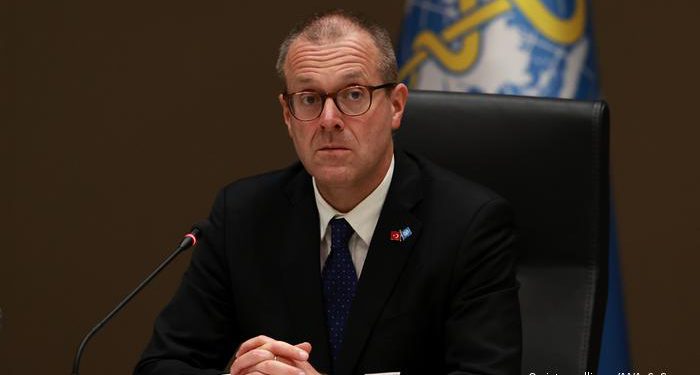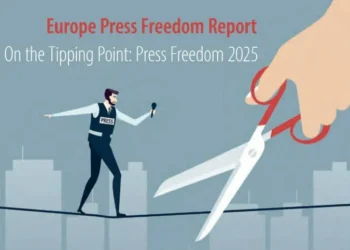WHO/Europe Regional Director, Dr. Hans Kluge made a statement regarding the 2021 United Nations Climate Change Conference, also known as COP26, pointing out that climate change is already threatening our health and our future survival.
“Our climate is changing. We have known this for decades but the evidence is more solid than ever before, according to the latest Intergovernmental Panel on Climate Change report released this year. Climate change is already threatening our health, our future survival.
“This COP26 is the deadline for the Paris Agreement to be put into action. All parties need to agree on an evidence-based pathway to a zero-carbon future. We need to build a resilient, inclusive and green global economy, that will be a turning point for our planet and health.
“For the first time, health is a central science priority area. The COP26 Health Programme was established to bring stronger health focus and ambition to COP26; to provide the impetus for action to adopt the implementation guidelines of the Paris Agreement.
“Immediate, strong and sustained reduction in emissions of carbon dioxide and other greenhouse gases would limit climate change, although it could take at least three decades to see global temperatures stabilize. The good news however is that reducing emissions would immediately benefit our health through improved air quality. The urgency is clear. Let me illustrate why our health is so dependent on this action.
- Only months ago, floods in western Europe — the worst in a generation — left hundreds dead. Floods cause drowning and injuries. Infectious diseases and mental health problems can persist long after the water subsides.
- Several countries across the WHO European Region have seen severe wildfires that pose health risks linked to smoke inhalation and injuries. Like flooding, wildfires also cause destruction and devastation to infrastructure and communities.
- Heatwaves persistently threaten our global health. Particularly at risk are older people, infants, the chronically ill and people working outdoors – including emergency workers. In Italy, a temperature of 48.8°C was recorded this summer, what is believed to be a new European record.
“These are the real impacts of climate change just this year; direct impacts on our health, expected to become even more frequent and intense as a result of climate change. Globally, the effects are even more devastating and catastrophic, threatening food and water security.
“This is why our health is so critically dependent on climate action.
“This is why last month I wrote to every minister of health in the European Region encouraging them to champion the initiatives of the COP26 Health Programme – commitments that will make a significant and long-term contribution to protecting the health of our people and support the goals of the Paris Agreement. By signing up to it, ministries of health become agents for change, leading by example.
“This is why two months ago, tasked with rethinking health policy, the Pan-European Commission on Health and Sustainable Development, in its final report, heavily focused on OneHealth, emphasizing its interconnectedness to climate change, environmental pollution and loss of biodiversity, calling for a coordinated action to reduce environmental risks to health.
“In September, at the 71st session of the WHO Regional Committee for Europe, I stressed that the health response to climate change deserves our undivided attention. But within the health sector, we need to introduce another layer of action.
“We often address climate change through emergency responses. It is now time to accept that these emergencies are here to stay. We therefore need a sustained response, beyond emergency management, making our health systems more resilient, better prepared to respond to the climate crisis.
“The WHO Regional Office for Europe, in particular through our European Centre for Environment and Health in Bonn, Germany, of which I am so proud, continues to provide evidence on the health impacts of climate change together with guidance to Member States on health adaptation planning and the health co-benefits of mitigation.
“We stand ready to support our Member States in developing and implementing health-centric climate policies.
“Together, let’s strengthen the voice of the health sector for climate action,” he stated at COP 26 in Glasgow on Thursday, 11 November 2021.
COP 26 is being held at the SEC Centre in Glasgow, Scotland, United Kingdom, between 31 October and 12 November 2021, under the presidency of Alok Sharma.
Related Story: Georgia – One of 120 Countries Showing an Interest in Battling Climate Change














